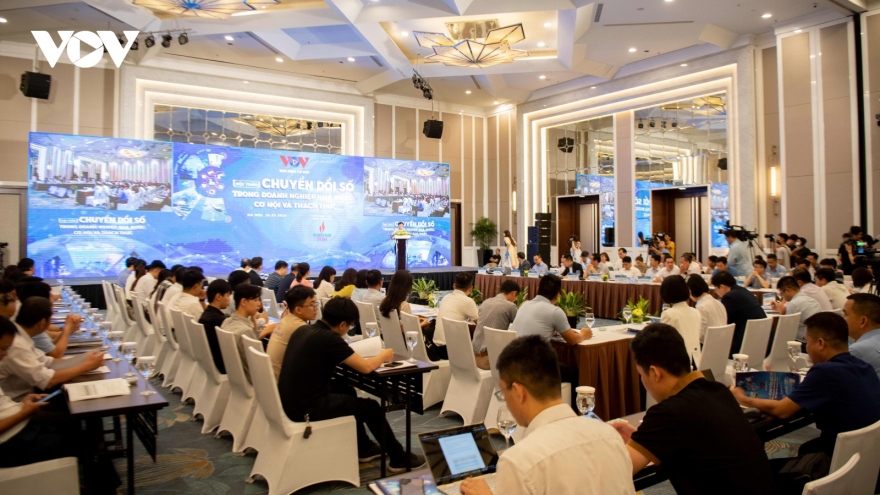Breakthrough solutions introduced to boost the development of the state economy
VOV.VN - A series of breakthrough solutions will be introduced to enhance the leading role of the state economy in Vietnam, Deputy Minister of Finance Ho Sy Hung said at a meeting on September 12 examining the drafting of a Politburo Resolution on the development of the state economy.

Presenting a report at the meeting, Hung said that the draft Resolution was developed based on inputs from all 15 ministries and agencies, as well as experts. The document clarifies guiding viewpoints, objectives, and key solutions tailored to each actor and resource within the state economy, aiming to strengthen its leading role in the national economy.
The draft emphasises reform and capital investment orientation, focusing on building large-scale state-owned enterprises (SOEs) that can lead strategic sectors such as energy, transport infrastructure, and high technology, particularly digital technology, artificial intelligence, electronics–telecommunications, and the defence industry.
It highlights innovation, with a plan to establish research and development centres as well as venture funds within SOEs to master core and strategic technologies. It calls for improvements in corporate governance, including the introduction of wage and bonus mechanisms linked to business performance and the resolution of long-standing inefficiencies to ensure greater transparency and effectiveness.
The draft proposes restructuring and selective equitisation, under which equitisation would only be carried out when truly necessary and beneficial to both enterprises and the State. At the same time, the role of the State Capital Investment Corporation (SCIC) would be strengthened, moving toward the establishment of a national investment fund.
Regarding public service units, the draft seeks to promote financial autonomy, diversify resources, expand public–private partnerships, and develop international-standard centres for health care, education, and research. In terms of land and resources, it calls for a review of legislation on land, minerals, and digital resources, while prioritising land use for strategic infrastructure, renewable energy, and high-tech industries.
With respect to infrastructure and national reserves, the draft sets out plans to invest in modern reserve warehouses and to digitise the management of state budgets, reserves, and financial funds.
“We will selectively implement competitive bidding in combination with assigning major state-owned enterprises to carry out key investment projects,” the Deputy Minister of Finance said.
Representatives from the Government Office and ministries noted that the draft should further clarify the scope and resources of the state economy, as well as its relationship with the private sector – the most important driver of the economy. The Ministry of Culture, Sports and Tourism proposed adding the role of the state economy in developing culture, creative industries, journalism, and publishing, highlighting culture as a form of “soft power” alongside politics, economy, and defence.
After nearly 40 years of implementing the Đổi Mới (Renovation) process, the state economy has played a pivotal role in stabilising the macroeconomy, ensuring economic security and social welfare. Large SOEs have gradually asserted key positions with growing regional and international competitiveness. However, many SOEs’ performance remains disproportionate to the resources they hold, with limited international competitiveness and insufficient pioneering role in innovation. Public service units are cumbersome, with restricted financial autonomy; while, several extra-budgetary funds are fragmented and inefficient.
Concluding the meeting, Deputy Prime Minister Nguyen Chi Dung emphasised that the Resolution must address immediate issues while setting out a long-term strategic vision. It should clearly define the leading role of the state economy and the pioneering position of SOEs, alongside the private sector and the foreign direct investment (FDI) sector, as the three main pillars of the national economy.
He stressed that solutions must be focused and avoid overlap, with SOEs taking the lead in digital transformation, green transition, and sustainable development. There must also be tools to evaluate divestment effectiveness, manage public assets, and strengthen the autonomy of public service units.
The Ministry of Finance will continue refining the draft Resolution based on collected feedback before submission to the Politburo for approval.





